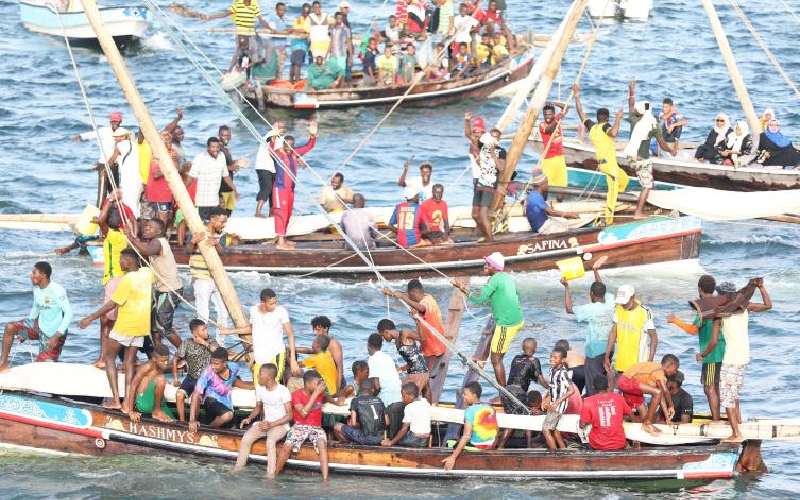×
The Standard e-Paper
Kenya’s Boldest Voice

Locals in celebrations aboard their dhows during the 132nd Maulid Celebration. [Maarufu Mohamed, Standard]
This week, Lamu was the centre of activity during the Maulid festival as action returned to the archipelago after 18 months of silence.